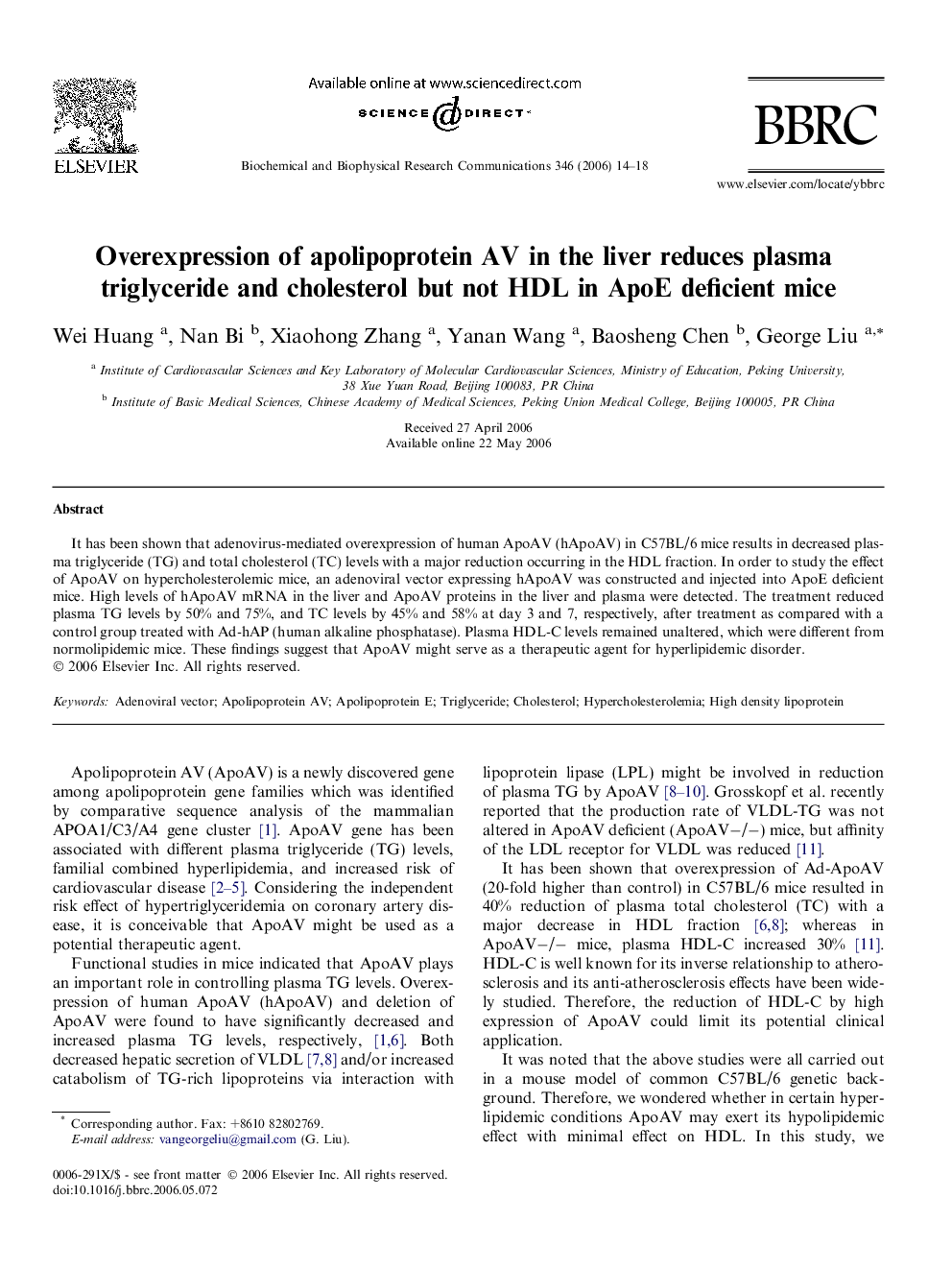| Article ID | Journal | Published Year | Pages | File Type |
|---|---|---|---|---|
| 1940107 | Biochemical and Biophysical Research Communications | 2006 | 5 Pages |
It has been shown that adenovirus-mediated overexpression of human ApoAV (hApoAV) in C57BL/6 mice results in decreased plasma triglyceride (TG) and total cholesterol (TC) levels with a major reduction occurring in the HDL fraction. In order to study the effect of ApoAV on hypercholesterolemic mice, an adenoviral vector expressing hApoAV was constructed and injected into ApoE deficient mice. High levels of hApoAV mRNA in the liver and ApoAV proteins in the liver and plasma were detected. The treatment reduced plasma TG levels by 50% and 75%, and TC levels by 45% and 58% at day 3 and 7, respectively, after treatment as compared with a control group treated with Ad-hAP (human alkaline phosphatase). Plasma HDL-C levels remained unaltered, which were different from normolipidemic mice. These findings suggest that ApoAV might serve as a therapeutic agent for hyperlipidemic disorder.
